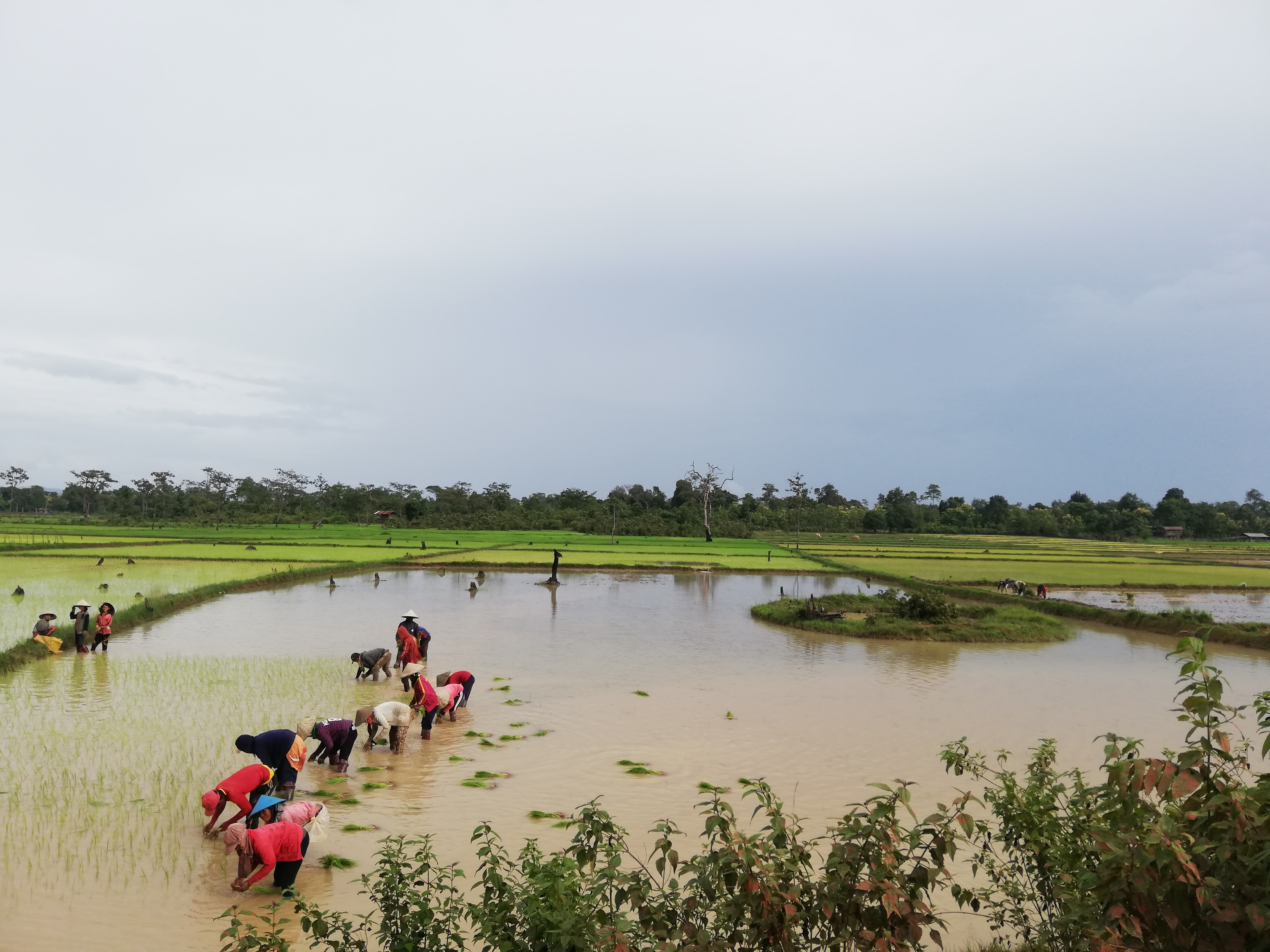About the LIWG
The Land Information Working Group (LIWG) is a civil society network that was set up in 2007. The LIWG consists mostly of international and local civil society organization staff and other individuals working on land issues in Lao PDR. The group has over 80 Core Members representing nearly 40 organizations, and over 180 individual Supporting Members. The LIWG activities are implemented through the LIWG Secretariat which is overseen by the Committee, elected from among the member organizations.
The group was established so that its members could inform one another about land matters, especially in view of increasing land related foreign direct investment (FDI) projects and concerns over the negative impacts on the livelihoods of rural communities, as well as to develop common initiatives to address some of these issues. The LIWG does this by cooperating with a wide variety of stakeholders: civil society, Government, Development Partners, private sector, and, importantly, the communities themselves.
The LIWG has member organisations and independent consultants working on land related matters across Laos who are willing to engage actively in LIWG activities. Specific task forces or working groups are established to address specific issues in order to develop strategies and a unified approach, where possible.
The role of the LIWG is to provide a networking and information hub by acting as a bridge and community of practice to create synergies across land tenure security-related activities of its members.
Organization
The Land Information Working Group (LIWG) promotes awareness and understanding of the social, economic and environmental impacts of land-related projects, by gathering and disseminating information, facilitating dialogue and carrying out studies. The LIWG consists mostly of international and local civil society organization staff and other individuals working on land issues in Lao PDR. Nearly 40 different organisations are represented in the core group.
Several international NGOs concerned that land issues may impact negatively on livelihoods of marginalized groups in Lao society set up the LIWG in 2007. The aim was primarily to inform each other about land issues and later also to develop common initiatives to address them with a wider range of stakeholders.
The LIWG is one of the thematic working groups of the iNGO Networkthe network of international NGOs in Laos. The LIWG Constitution defines the rules, the membership and the decision-making procedures of the group. The LIWG is governed by a 7-member Committee which is responsible for the general direction of the group. The Committee consists of representatives of the member organisations. Day-to-day activities are implemented by the Secretariat, consisting of a staff of four. The membership is divided into core and supporting membership. The LIWG currently has over 80 core members representing nearly 40 different organisations, and over 80 individual supporting members.
The LIWG brochure is available to download in English and in Lao.
Why the LIWG?
Over the last 5-10 years foreign investment, supported by local actors, in industries such as mining, hydropower and plantation sectors, has increased rapidly making use of Lao PDR’s natural resources. There is a growing competing interest over land, water and forests between large-scale investors and rural, often poor, communities relying on the same natural resources for their subsistence.
Opening up of rural areas as a result of private investment is creating two possible paths for rural communities. In one direction is improved access to services, expansion of local employment opportunities, spread of environmentally sound practices, and more equitable participation in the development process. In the other direction is reduced access to land by smallholders who are pushed aside by concessionaires, a rapid outflow of young people, wildlife and forest products, and a consequent erosion of natural capital, human resources and cultural identity, creating a path towards an unsustainable extractive economy. The LIWG considers that action is urgently needed by all development partners to prevent this process.
While industrial development sounds good in theory, in practice the absence of a comprehensive regulatory framework around investments in land concessions has led to land grabbing by largely foreign companies around the country. Many rural people experience negative effects of this land grab, such as loss of agriculture, grazing and resource rich forest lands with no compensation, contaminated rivers and streams, and very little benefit to rural communities.

WhatWe Do
The Land Information Working Group (LIWG) is to provide a networking and information hub by acting as a bridging organisation and community of practice to create synergies across land tenure security-related activities of its members. The LIWG aims to focus on promoting and maintaining a strong network and Community of Practice on land matters among LIWG members in order to influence decision making, policy development and implementation via three following pillars (objectives):
Pillar 1: Connecting. Build connections and trust for dialogue and engagement in land governance issues Act as a community of practice and bridging organisation to connect network members, partners and key stakeholders, in order to build connections and trust, develop spaces and channels of communication, share knowledge for dialogue and engagement in land governance issues.
Pillar 2: Mobilizing. Mainstream grassroots implementation of land rights Encourage members to engage in activities that promote land governance at national through to local level, putting legislation and policies into practice, learning by doing, engaging directly with communities.
Pillar 3: Engaging. Promote policy dialogue among multiple stakeholders to improve land tenure security. Facilitate policy engagement processes between stakeholders, feed lessons learned from research and practice back into policy influencing and networking, and strengthen capacity of LIWG members to engage and participate in policy making processes particularly in linking policy to practice. The case study and research commissioned and published can be found in the publication session.

